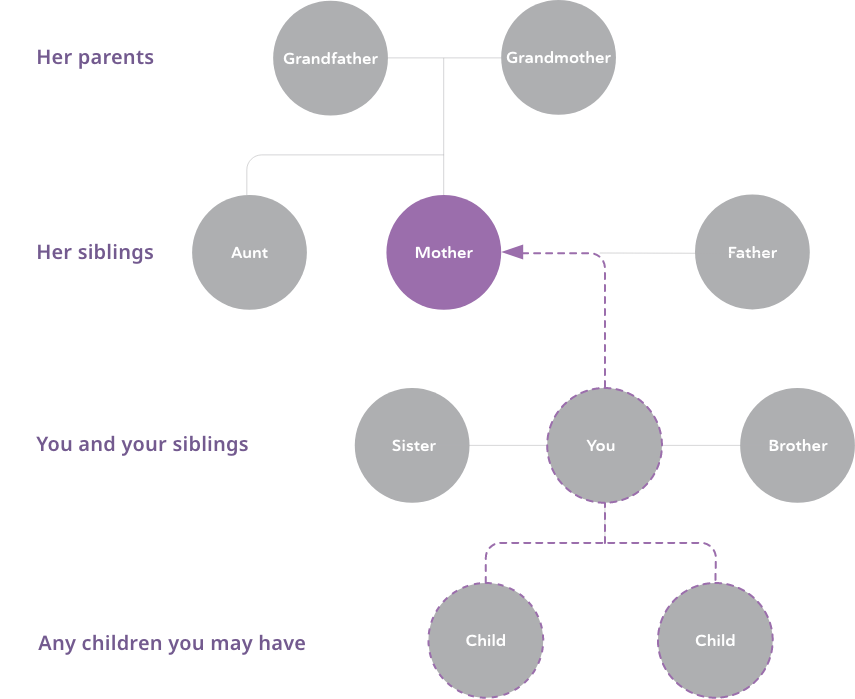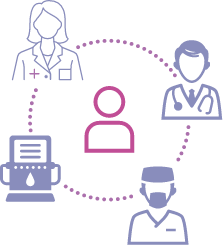
Ever wonder how well your kidneys are working?
In order to find out, your doctor may conduct a medical exam including blood and urine tests.
If you are having any issues with your kidneys, your doctor may refer you to a nephrologist, a doctor who deals with conditions and diseases that affect the kidneys. Dr Manish Maski, nephrologist and scientist at Sanofi Genzyme, describes some topics you may discuss with your nephrologist, including your health history and your family history.
Reviewing your health history
Family history of kidney disease is always important, but it’s not always discussed. Knowing your health history may help inform a possible diagnosis.
For your nephrologist to get an overall idea of the status of your health and what may be causing any kidney issues, they may ask about your full health history. This may include:
Illnesses you
had as a child
Number of surgeries
you have had
Current medications
you are taking
Times you were admitted
to the hospital
Chronic health
conditions you have
Any family history
of kidney disease
Your nephrologist will want to know about any signs or symptoms you’ve had, including:
- Decrease in the amount of urine
- Swelling in legs, ankles, or feet (fluid buildup)
- Shortness of breath
- Fatigue
- Difficulty sleeping
- Muscle cramps
- Blood in urine
- Elevated blood pressure
- Pain on one side or back
Discover how kidney disease is measured and diagnosed
Families with known inherited diseases
A more detailed family history is taken in families with a known genetic kidney disease. Often this involves making a pedigree, or a genetic family tree, that shows how a trait or disease is passed down in families.
For example, if your mother had autosomal dominant polycystic kidney disease or ADPKD, a nephrologist may ask about:


A couple of generations back and a generation forward can usually give you a sense of how that particular genetic variant acts within your family and is passed down through generations.
Even though the way a gene affects your family may vary, your nephrologist may often get a sense of whether it’s a severe or less severe variant.
Testing other family members
If your family has a history of kidney disease, you may discuss testing other family members. Individual families should weigh the benefits and risks of family health conversations that may be uncomfortable. Your family may also want to talk about testing at-risk family members. Each family needs to decide for themselves what they are comfortable with.
Some things to consider include:
Inherited kidney diseases
that may not have specific treatment options
Emotional impact of being
diagnosed with an inherited kidney disease
Potential for
genetic discrimination* when finding life insurance
Genetic discrimination is when patients are treated differently by an employer or insurance company because they have certain genes that may cause or increase the risk of disease.
You and your nephrologist can come to a shared decision; but ultimately, the decision is yours to make. You may find yourself acting as a champion within the family for the disease, and that’s okay.
Learn more about choosing a family health historian
Referrals to other specialists

Referrals to other specialists
You may also receive a referral to speak with a kidney dietitian. Diets, both what you should and shouldn’t eat, are important for management of kidney conditions. And, if your kidney disease progresses to end-stage kidney disease (ESKD), it is possible you may need to be referred for dialysis. You could also be evaluated by a transplant nephrologist and/or transplant surgeon to determine whether you are eligible for a kidney transplant.
Remember to ask questions
Meeting with your nephrologist is a chance to have your questions answered and discuss any of your concerns. No one is a better advocate than you, particularly when it comes to your health. Take advantage of the many educational opportunities available at your fingertips to empower yourself.

